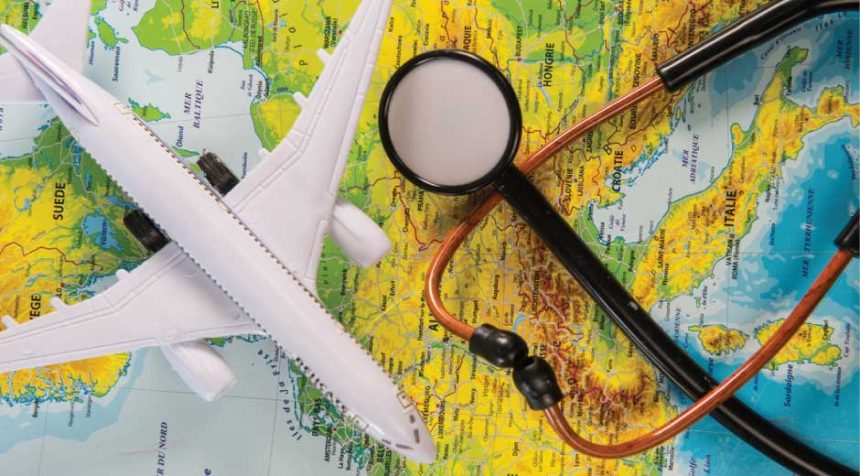Now it is summer; Schools are being to be closed for 2 months and time for traveling. Travel medicine is about prevention and if you decide to travel, consult with your doctor at least one month before travel to allow time for thorough evaluation and for immunizations.
To estimate the risks of exposure to endemic diseases, the itinerary, duration, and purpose of a trip can help. Stays at major resorts and first-class hotels are associated with less risk than visits to less-established facilities or rural dwellings or encampments.
ALways as a traveler, you should take sufficient supplies of current medications; equivalent drugs may not be available in travel destinations.
Immunizations: Immunization for travelers can be divided into three categories: routine prevention, required for travel, and recommended based on the risk of exposure to vaccine-preventable diseases. For immunization, visit your doctor 4-6 weeks before your trip.
Malaria prevention: Those travelers who are traveling to endemic areas of Malaria should be advised about mosquito avoidance and chemoprophylaxis. Your doctor is prescribing anti-malaria medications, depending on the medication, a few days before starting the journey until a few days after returning back;
Food and water: Traveler’s diarrhea, Hepatitis A, and E are some of the infections which transmitted by contaminated water and food. It is prudent to be careful of food and water in areas where sanitation and personal hygiene may be poor. Hands should always be washed before eating. As a traveler, you should avoid consuming tap water, ice made from tap water, and raw foods rinsed with tap water.
If you are not sure about the water only boiled, treated, or bottled water may be consumed. Food should be eaten well-cooked and while still hot. Unpasteurized dairy products and undercooked fish or meat should be avoided.
Vector avoidance: Travelers to areas with malaria, dengue, chikungunya, Zika, and other vector-borne diseases should receive instructions regarding methods to prevent bites from mosquitoes. These measures are also generally effective for reducing risks of bites from sandflies, ticks, and other insects. Measures include:
- Avoiding outdoor exposure during mosquito feeding time (for malaria, Japanese encephalitis, and West Nile virus, this is between dusk and dawn; for dengue, chikungunya, Zika, and yellow fever, this is during the daytime)
- Wearing clothing that reduces the amount of exposed skin
- Using an insect repellant
- Treating fabrics (including clothes) with insecticides
Respiratory infections: The commonest infections in travelers are Respiratory infections such as influenza and other respiratory viruses. The importance of good hand hygiene is the mainstay of prevention.
Swimming and beaches: If you are enjoying swimming in fresh water, always consider to avoid swimming in areas where schistosomiasis is prevalent. Even short exposures to infested water during rafting or swimming are sufficient for transmission. Schistosomiasis u=is living in fresh waters such as lakes and rivers.
Please be cautioned about the risks of walking barefoot or in loose-fitting footwear on beaches, on soil, or in water that may be contaminated with human or canine feces. Such exposure may lead to contact with hookworm.
Travelers should also wear sunglasses and sunblocking agents with ultraviolet A and B protection.
If you are diabetic and under treatment with Insulin, you should consult with your doctor for adjustments in insulin dosing. East-west travel across times zones often requires Insulin adjustment.
Resources:
- Centre for Disease Control and Prevention (CDC), 2018
- Update, travel Medicine, 2018
By Dr. Fatemeh Aghanasiri, M.D. (MCC) – Medicentres, Al Furjan


Leave a Reply